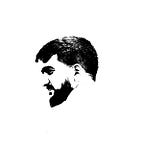22 Quotes From The Book: The 7 Habits Of Highly Effective People
3 min readAug 3, 2022
This book is an excellent read.
The book “The 7 Habits Of Highly Effective People” is one of the best self-help books I’ve ever read. Stephen R Covey, the author of this book starts by laying out the differences between “Personality Trait” & “Character Trait”.
And then explains the time principles that can help you achieve your private goals and gain public victory.
It’s a bit long book but every line is filled with tons of value. And here are some of the lines that I’ve underlined from the book. Keep reading!
- To learn and not to do is really not to learn. To know and not to do is really not to know.
- “What we are” communicates far more eloquently than anything we say or do.
- We see the world not as it is but as we are conditioned to see it.
- Always treat your employees exactly as you want them to treat your best customers.
- “No one can persuade another to change. Each of us guards a gate of change that can only be opened from the inside. We cannot open the gate of another, either by argument or by emotional appeal” — Marilyn Ferguson.
- As human beings, we are responsible for our own lives. Our behavior is a function of our decisions, not our conditions.
- Proactive people are value-driven. If their value is to produce good quality work, it isn’t a function of whether the weather is conducive to it or not.
- Not facing reality would have been to accept the idea that what’s happening in our environment had to determine us.
- If I really want to improve my situation, I can work on the one thing over which I have control — myself.
- “Management is doing things right; Leadership is doing the right things” — Warren Bennis. Management is efficiency in climbing the ladder of success. Leadership determines whether the ladder is leaning against the right wall.
- I’m convinced that too often parents are also trapped in the management paradigm, thinking of control, efficiency, and rules instead of direction, purpose, and family feeling.
- Almost all of the world-class athletes and other peak performers are visualizers. They see it. They feel it. They experience it before they actually do it. They begin with the end in mind.
- You have to decide what your highest priorities are and have the courage pleasantly, smilingly, and unapologetically to say “no” to other things. And the way you do that is by having a bigger “yes” burning inside.
- If we delegate to time, we think efficiency. If we delegate to other people, we think effectiveness. Effectively delegating to others is perhaps the single most powerful high leverage activity there is.
- Self-mastery and self-discipline are the foundation of good relationships with others. The most important ingredient we put into any relationship is not what we say or what we do, but what we are.
- Think win/win. Win/Win is based on the paradigm that there is plenty for everybody, that one person’s success is not achieved at the expense or exclusion of the success of others.
- Your character is constantly radiating, communicating. From it, in the long run, I come to instinctively trust or distrust you and your efforts with me.
- The person who is truly effective has the humility and reverence to recognise his own perceptual limitations and to appreciate the rich resources available through interaction with the hearts and minds of other human beings.
- As long as you feel you are serving others, you do the job well. When you are concerned only with helping yourself, you do it less well.
- The person who doesn’t read is no better off than the person who can’t read.
- “Treat a man as he is and he will remain as he is. Treat a man as he can and should be and he will become as he can and should be” — Goethe
- Your economic security does not lie in your job; it lies in your own power to produce — to think, to learn, to create, to adapt. That’s true financial independence. It’s not having wealth; it’s having the power to produce wealth. It’s intrinsic.
